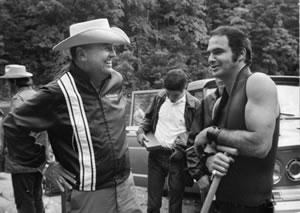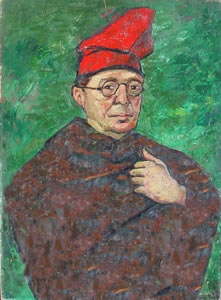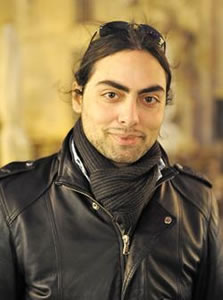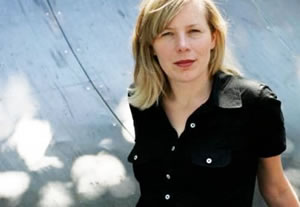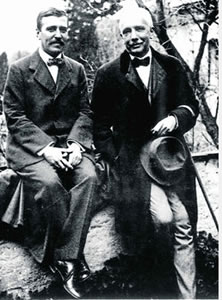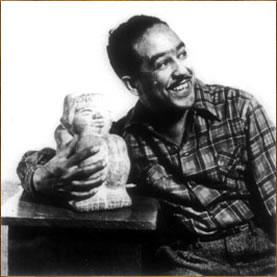De Nederlandse schrijfster Hella Haasse werd geboren op 2 februari 1918 in Batavia. Zie ook mijn blog van 2 februari 2007 en ook mijn blog van 2 februari 2008 en ook mijn blog van 2 februari 2009 en ook mijn blog van 2 februari 2010.
Uit: De scharlaken stad
„Hij wist nauwelijks hoeveel maanden er waren voorbijgegaan sinds zijn terugkeer in Florence. Hij had zich ingegraven in het werk, zoals een mol zich ingraaft in zijn onderaardse koker. Hij was blind en doof voor de buitenwereld. Toen hij, in Rome, onder het vaderlijk knikken en aanmoedigend gesticuleren van paus Clemens, tenslotte zijn handtekening zette onder het nieuwe contract met de heren Della Rovere, had hij beseft dat hij zichzelf onherroepelijk veroordeelde tot dwangarbeid. Hij was bereid slaaf te zijn, niets dan slaaf, verbeten te zwoegen aan zijn taak. Hij wist wel dat hij zich nooit bevrijd zou voelen van schuld vóór die taak beëindigd was. Maar waarom werd hem niet de genade gegund ongestoord te volbrengen wat hij zijn plicht achtte, ongestoord te boeten voor een oud verzuim? In een slotwoord, vóór de audiëntie beëindigd werd, had de paus het vonnis over hem uitgesproken, luid: ‘Het grafmonument wordt voltooid, heren, dat staat nu vast, onze waarde kunstenaar hier heeft het zojuist zwart op wit bevestigd, nu is deze onaangename kwestie wel uit de wereld hopen wij,’ en, fluisterend, alleen voor hém verstaanbaar: ‘maar vergeet intussen het werk aan de Medici-kapel niet, ik reken erop dat u zich ook houdt aan het contract dat u met mij gesloten hebt.’
Sindsdien weer die innerlijke verscheurdheid waarbij ieder ander leed in het niet verzonk. In zijn dromen rees Julius’ mausoleum voor hem op, gezwollen tot geweldige afmetingen, een groep van gestalten reikend tot in de wolken, Mozes, Paulus, Rachel en Lea, giganten van marmer, omhoog gestoten door de aarde zelf, zoals gebergten ontstaan. Langs de plooien van hun gewaden, reusachtige stenen riffen, trachtte hij omhoog te klimmen. een mier, een pover zwak wezen op trillende poten, hoger, hoger, tot waar de personificaties van hemel en aarde de sarcofaag hieven waarin zijn kwelgeest sliep, Julius, wiens hoogmoed hem dit had aangedaan. De macht van die paus-veroveraar verheerlijken, meer dan tien jaren na diens dood, op een tijdstip dat het pauselijk gezag een aanfluiting was en de veroverde gebieden beefden voor de komst van een nog gevreesder vijand – dat scheen hem méér dan dwaasheid, een smaad, een leugen.“
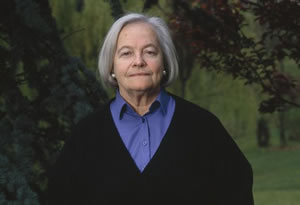
Hella Haasse (Batavia, 2 februari 1918)
Lees verder “Hella Haasse, James Joyce, Eriek Verpale, Monica Camuglia, Michel Marc Bouchard”

